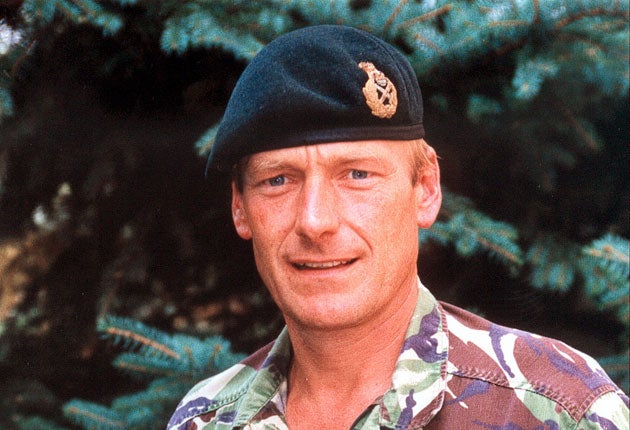Life after the Army: Centre opens for homeless veterans
A house in Newcastle is the new home for former service personnel who have struggled to adapt to civilian life

A unique new veterans' centre has opened in north-east England to help hundreds of former service personnel who face sleeping rough, unemployment, mental illness and prison.
A four-storey Victorian house in the centre of Newcastle has been converted into a stylish five-bedroom rehabilitation home for homeless veterans who have struggled to adapt to civilian life since leaving the armed forces. It is the opposite of the stereotypical halfway house, with Ikea furnishings and bright, airy decor.
The centre, the first of its kind in the UK, is tailored to veterans' needs, acting as a hub for services including specialist housing, education and training support, debt advice, family liaison, counselling, health and well-being programmes.
Run by veterans for veterans, it will work closely with local prison and probation services, Combat Stress, the British Legion, a local training college and health services.
Last week, the centre's manager, Major Phil Thompson, who left the Army in May after 31 years, said he aims to re-create the camaraderie and structure of life in the forces while helping veterans to become accustomed to independent life.
North-east England is the most popular recruitment area for the Army. The centre aims to reach out to the region's 200,000 veterans, some of whom suffer in silence, too embarrassed to come forward for help with basic life skills. More veterans are falling on hard times as a result of relationship breakdowns, domestic violence, bereavements and anger issues, according to Major Thompson. As many as one in 10 prisoners are ex-military, according to the National Association of Probation Officers.
Among the first to move into the house last week, in time to mark Remembrance Day, was Richard "Tomo" Thomas, 46, who left the Royal Artillery two weeks ago after 22 years of service. Rising to the rank of sergeant, he served in Kuwait, Northern Ireland, Bosnia and Kosovo.
Another resident is a former soldier fresh from serving six years in prison and another with 10 years of sleeping rough behind him. They will spend up to a year learning basic skills such as cooking, managing money and writing a CV – skills they never needed while serving. There will be 24-hour-a-day support to help those suffering from family breakdowns, and alcohol, drug and mental health problems.
Mr Thomas loved every minute of his military career but found that the Army's protective arm pulled away the minute he left. He spent the last six months of his army career on "gardening leave", during which he received a hard dose of civilian reality. "I sent 280 CVs out for jobs like warehouse manager, forklift truck driver, HGV driver, and got five replies. None were successful. I went to two job fairs and spent two weeks walking around Newcastle in a suit and tie looking for a job. Nothing."
He has never managed his own money, looked for a job or somewhere to live. His marriage broke down last year after 19 years and he has become estranged from his 16-year-old daughter. His army pension means he is not entitled to benefits, but the pension has been withheld while the courts decide on alimony payments. No money means no deposit for a flat. He has multiple army qualifications but had no idea about the grant to help veterans convey these skills to civilian employers.
None of these problems is insurmountable, but they can, and do, lead to hundreds of veterans becoming "down and out" every year, according to Lt Gen Robin Brims, who led ground forces into Iraq in 2003.
The centre is perhaps an example of what the state and Big Society can achieve by working together, said Lt Gen Brims. The homeless charity Norcare, which hopes to open similar centres in Middlesbrough and Sunderland, bought the dilapidated former British Legion HQ using a loan from the Social Investment Business, which manages government funds. The British Legion is paying running costs for two years; housing benefit pays the rent and each veteran contributes £11 a week.
Lt Gen Brims helped to design the centre after joining the Norcare board when he retired to his native North-east. He said: "We wanted to create a nice place for people to feel proud again. These men were previously very proud, successful members of society who have fallen foul of society. I think we've got that."
Join our commenting forum
Join thought-provoking conversations, follow other Independent readers and see their replies
Comments
Bookmark popover
Removed from bookmarks